11:18

Today's show is our first in the lunar Chinese new year. We are celebrating the New Year of the Tiger while we are in the middle of the 24th Winter Olympic Games – a good vantage point from where to see how Beijing 2022 is hitting the headlines, and also of course how the headlines are hitting Beijing 2022.
So let's start at the very beginning, as the song goes, the opening ceremony on February 4. Acclaimed film director Zhang Yimou, who had also directed the opening of the Beijing 2008 Summer Olympics, wove artistry, high technology and emotions into magic. The ceremony, themed the Story of a Snowflake, highlighted the idea of togetherness. In an innovative touch, snowflake-shaped placards bearing the names of the 91 participating delegations converged to form one giant snowflake, which was the cauldron for the Olympic flame. Many media called the ceremony "spectacular".
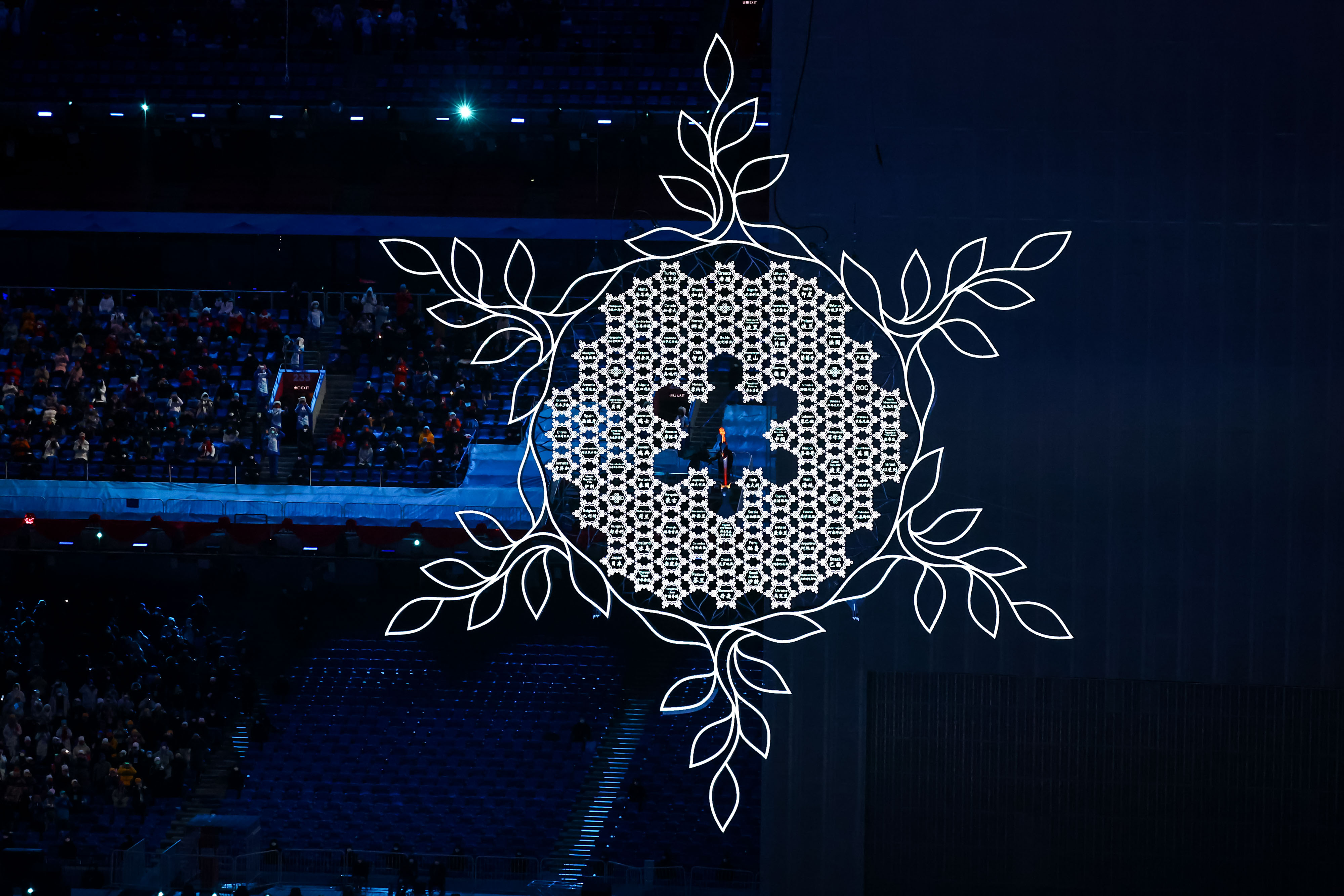
By the morning of February 10, we've seen some amazing records being set in speed skating, figure skating, short track speed skating, freestyle skiing mogul and other magic moments. And the Games are going on as we speak.
International Olympic Committee President Thomas Bach has called Beijing 2022 "an extraordinary achievement". He said "this opens a new era for global winter sport. It will raise the global participation to new levels."
But how have the foreign media portrayed the opening ceremony and the Games so far?
We did a data analysis using articles on Beijing 2022. We selected 5 major English-language media – CNN, New York Times, Wall Street Journal, Financial Times and the BBC, and searched for keywords such as "Winter Olympics" and "opening ceremony" from February 3 to February 7. And we found 58 articles.

And guess what, the great majority of these headlines are negative, sandwiching the Games between geopolitics and political issues such as human rights. But some are more objective and positive, especially when it comes to the non-political subjects such as the artistic values of the opening ceremony and the organization of the Games.
So what do most of the headlines talk about?
Excluding words such as "Olympics" and "Beijing", "China" and "Uygur" top the frequency, followed by words such as "diplomatic", "boycott", "Putin" and "athlete".
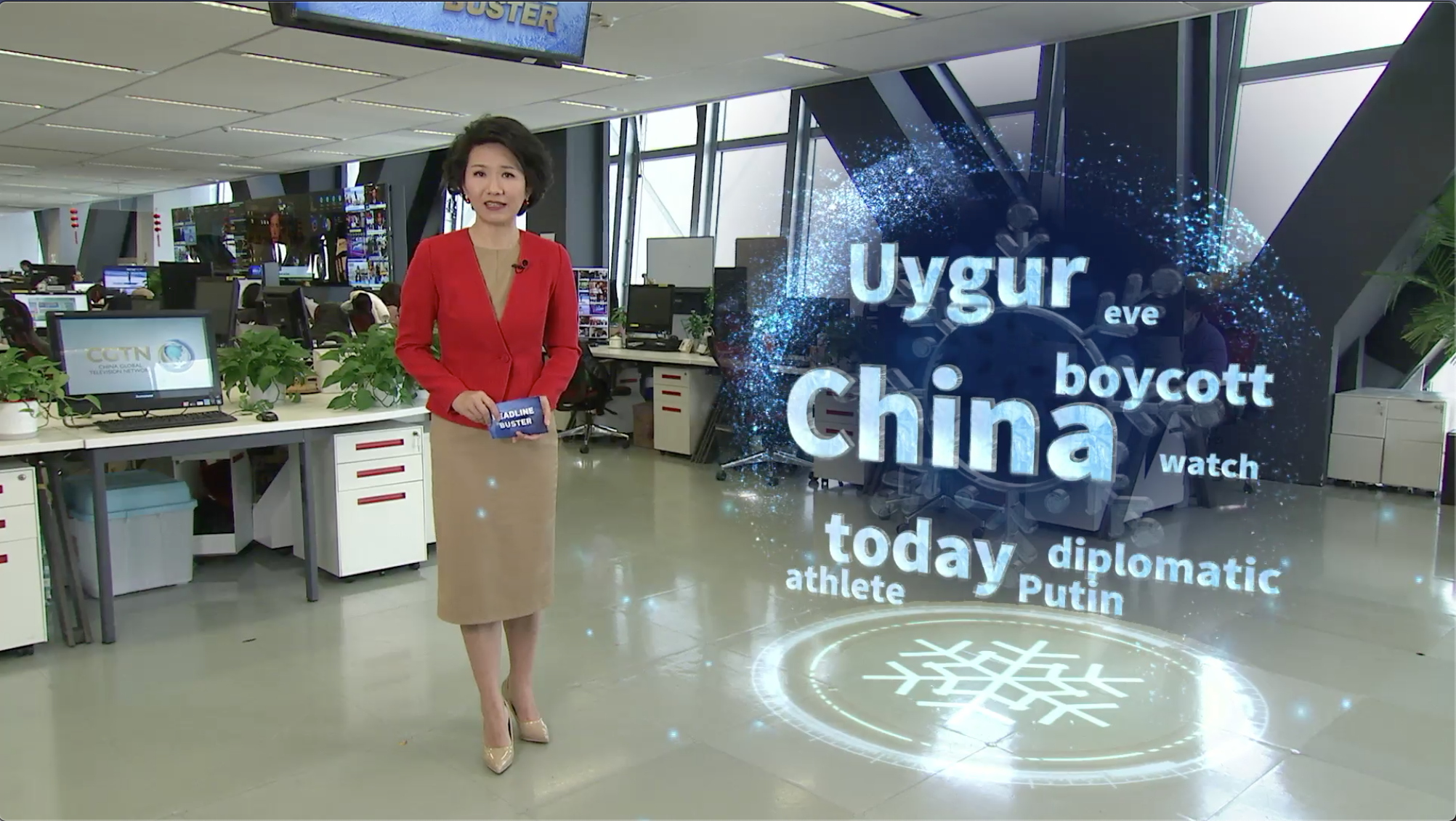
Exactly how negative are these headlines?
Well, in the general news category, the CNN had the highest number of negative headlines, 9 out of 14, a whopping 60% and above. But percentage-wise, the financial outlet Wall Street Journal topped the chart, with 6 negative headlines out of 7, that's close to 90%.
What was the tone of the CNN, which had the most negative reports in this time frame?
It either tried to put a label on the foreign dignitaries visiting China for the Games or focused exclusively on Covid prevention measures, or anything that had to do with boycotts.
Specifically, the CNN inserted more political elements into the reporting as well. This chart shows how often the opening ceremony reports had specific agenda such as geopolitical relationship between China, the U.S. and Russia.
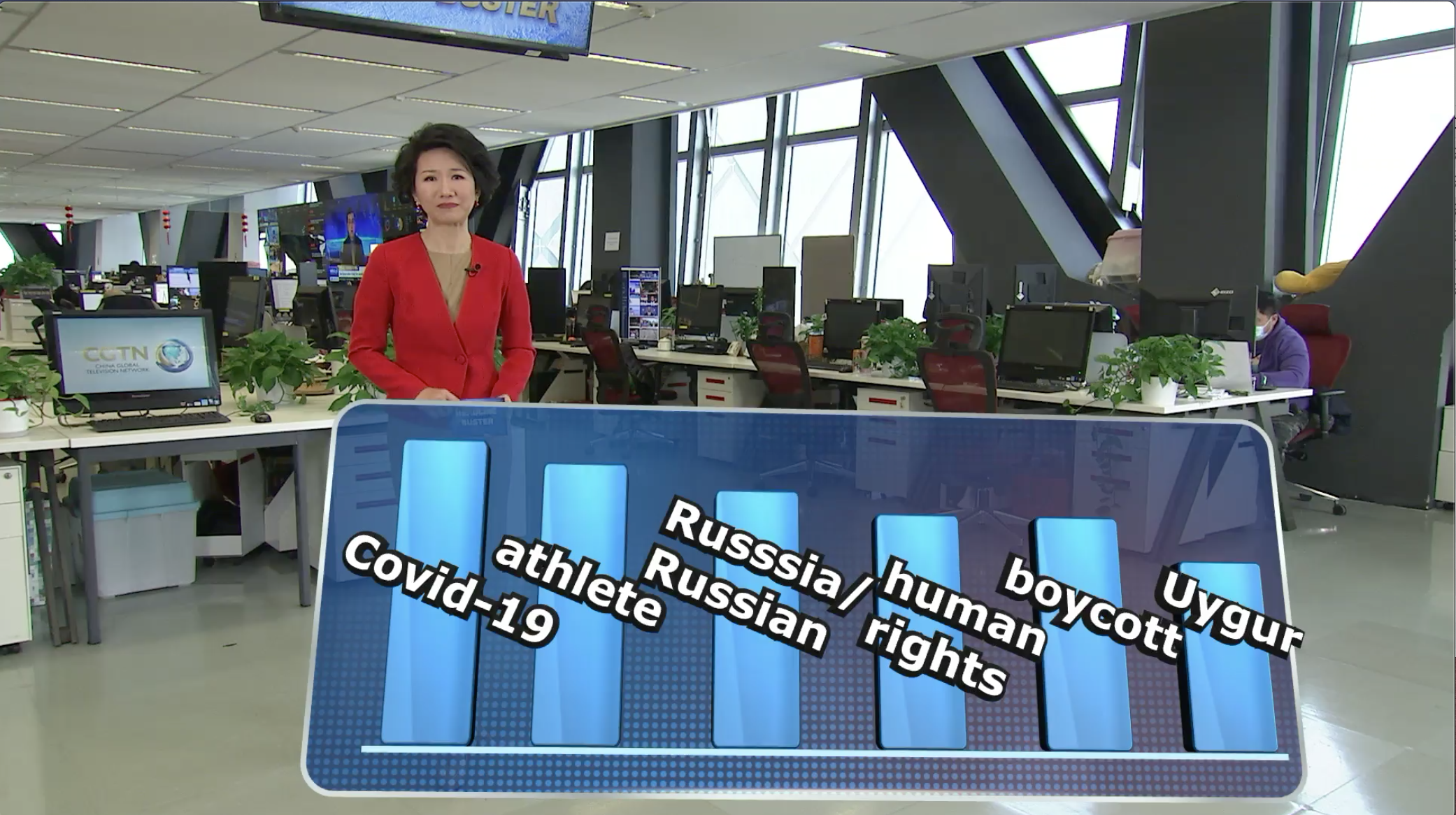
In a nutshell, despite some objective reporting, Beijing 2022 was cast in a negative light. Was this a surprise? Not if you have been following our program and using your common sense.
What do sports have to do with political issues? Should we then start raising the same or similar questions for every host country of sport events? Or do we have a double standard here?
The message seems to be very clear: some seem not to be happy to see China deliver. That China opened the Games on schedule in fanfare is a disappointment to them.
There are other missing pieces in the big picture. Let me try to fill them out with some individual analysis of individual reports.
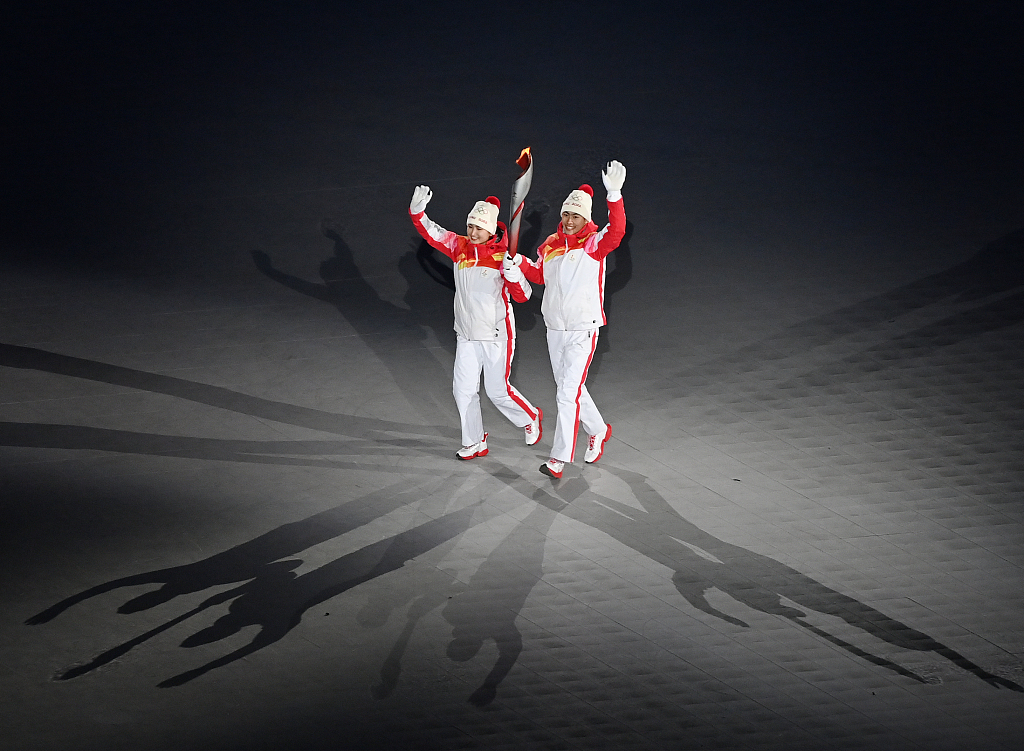
POINT1: Torchbearer
As I mentioned, the word Uygur appeared frequently in Western headlines. This representative piece says, for instance: In a provocative choice, China picks an athlete with a Uyghur name to help light the cauldron.
An athlete with a Uygur name! It's about Chinese cross-country skier Dinigeer Yilamujiang, who was one of the two final torchbearers. Instead of calling her a Uygur, because she is a Uygur, the report says she was of Uygur heritage. But Dinigeer Yilamujiang is from Altay, a skiing destination in China's Xinjiang Uygur Autonomous Region, and she's won a silver for China at the International Ski Federation Grand Prix event in 2019. Some simple research could have established her background. But why the vagueness and insinuation? Did the newspaper not want to admit that Xinjiang is part of China and that Uygurs are part of the Chinese family?
China is called "provocative" here, but if China hadn't chosen a Uygur athlete representative, would the detractors have given us a break and not dredged up this issue? I guess not!
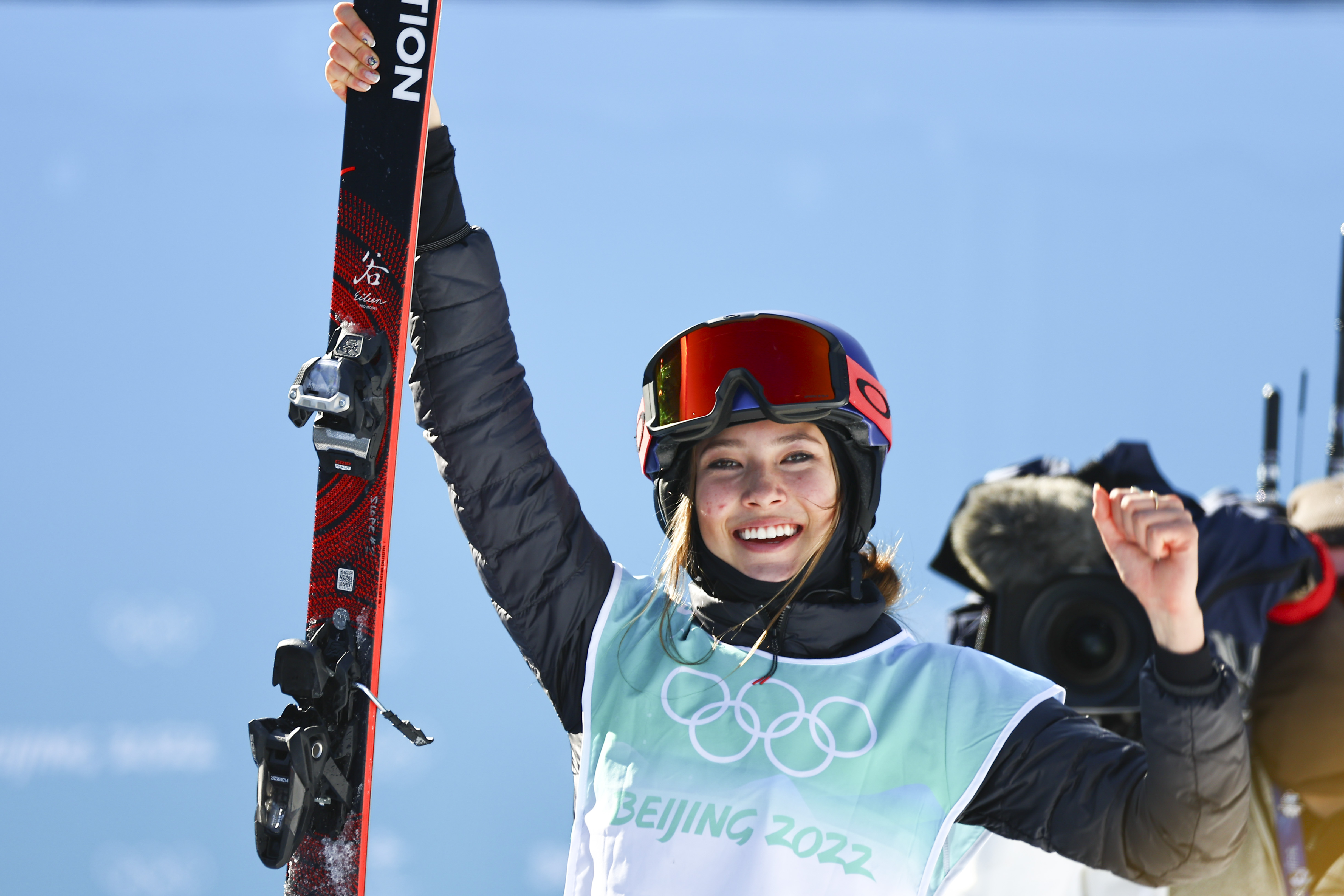
POINT 2: Gu Ailing
The Olympics are supposed to break down barriers. But instead, we have seen a section of the media hell-bent on dividing the world according to people's origins. The next outcry came when 18-year-old Gu Ailing, that's her Chinese name, or she's known by her English name as Eileen Gu, when she won the women's Freestyle Skiing Big Air for China. Born in a mixed family, she changed her nationality from American to Chinese in 2019 to join team China.
But some American media are almost calling her a traitor. Listen to this:
"It is incredibly… I think the only word we can arrive at is ungrateful, for her to betray, turn her back on the country that not just raised her but turned her in a world-class skier with the training and facilities that only the United States of America can provide, for her to then turn her back on that in exchange for money is shameful. "
Wow! I know Fox is fringe but it has a big following in America. So I want to address this:
First, it's a normal thing around the world that talents flow and exchange and enhance exchange while honing their competitive edge, both for themselves and for the country they join.
Snowboarder Jenise Spiteri, for instance, is representing Malta at Beijing 2022 but until 2014, she competed for team U.S. During the last Winter Olympics in PyeongChang in the Republic of Korea, alpine skier Jeffrey Webb represented Malaysia, instead of the U.S. And athletes of Chinese origin have also joined other national teams.
But it seems the outrage erupts only if someone changes citizenship from American to other countries, in this case China, and wins.
Japanese-American surfer Kanoa Igarashi was called a "traitor" by some for representing Japan instead of the U.S. in a 2018 World Championship. He responded by saying: "It's not war you know. At the end of the day, it's just surfing. It's a sport."
Come on America, you are an immigrant nation. How many foreign talents have left their home countries for the U.S.? Where were the complaints then?
POINT 3:Covid-management
Finally, I want to touch upon Covid-management measures as one card constantly played to cast a shadow over Beijing 2022. One agency even called it "China's Pandemic Olympics".
What can you call it but scaremongering when you look at the number of new cases in China. They are mostly in double or even single digit, utterly ignorable compared to some other countries, and yet these numbers are blown out of proportion.
Look at this headline: Omicron deepens uncertainty surrounding Beijing Olympics. Or this: Covid cases mount as athletes, personnel arrive in Beijing. Or this: The coronavirus continues to sideline Olympic athletes as they gear up for competition.
Exactly what numbers are we looking at? According to China's National Health Commission, the average number of new cases in China in the seven-day period from February 2 to February 8 was 62!
Wow, that's a real flareup, right? And these cases are really mounting, jeopardizing the safety of people! Come on!
Now some foreign journalists are finally conveying the right message. Here, we have a podcast, in which an American journalist who came to Beijing tells the inconvenient truth. Listen:
"People in China were able to live largely normal lives. I mean they had to wear a mask, they still had to measure their temperatures when they went into places but for the most part, there really was very little virus in the country as far as we know. When you look at the graph of Covid-19 deaths in China, you see a big spike in January to April 2020, but then after that it basically just flatlines. I mean if you even look at the death toll today, China has only had 4,600 or so deaths from the coronavirus."
What it takes to admit that China has done something right!

There are many more examples I can give just how some media maximized hiccups or concerns, as if the Games in Beijing are full of flaws, much more than ever before. Artificial snow for instance is another case in point! They tell you Beijing uses a lot of artificial snow but not that it's common practice among previous Winter Games, and that great pains have been taken to ensure sustainability.
Beijing 2022 is not perfect, nothing is. There are hiccups and glitches, but they don't represent the Games. The Chinese organizers and the Chinese people have been giving their best and that's been widely recognized. Anybody with common sense will have seen that the Games have consolidated bonds of fellowship and sportsmanship. And set new records all the time. That everyone comes together despite differences is what the Olympic spirit is all about.

